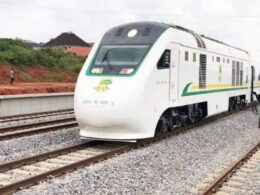The two-day nationwide strike embarked upon by Nigerian workers under the auspices of the Nigeria Labour Congress (NLC) and the Trade Union Congress (TUC) has resulted in a significant financial loss for the country’s domestic airports. The Domestic Airports Cargo Agents Association (DACAA) has estimated that the strike has cost Nigeria around N7 billion in cargo transportation.
According to sources, the strike caused a significant disruption in cargo operations, with approximately 30 tonnes of cargo not being lifted across the country’s domestic airports daily. The chairman of DACAA, Ikpe Nkanang, revealed that a substantial amount of cargo was ready to be transported before the strike began, but due to the airlines’ suspension of operations, these goods were left stranded.
The loss is estimated to be staggering, with each kilogram of cargo costing around N300. The impact of the strike was felt not only by the airlines and cargo agents but also by the economy as a whole.
In an effort to mitigate the effects of the strike, DACAA has urged the Federal Government to reach an agreement with the labour unions in a timely manner to prevent any further disruptions.
The strike, which was called off on Tuesday afternoon, allowed for continued negotiations on a new minimum wage. However, the ripple effects of the strike are still being felt, and it remains to be seen how the industry will recover from this significant loss.










Join our Channel...